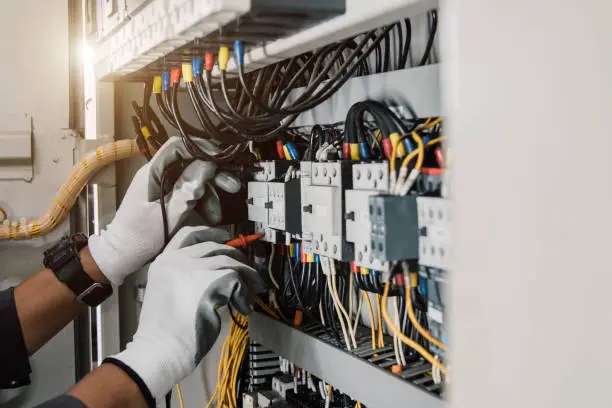Becoming an electrician in South Africa is a valuable and rewarding career path. It offers job stability, practical skills, and good earning potential. Electricians are always in demand, especially with the growing focus on infrastructure, construction, and renewable energy. If you’re interested in working with your hands and solving technical problems, this could be the perfect profession for you. Here is how to become an electrician in South Africa.
- Understand What the Job Involves
Before you begin your journey, it’s important to know what being an electrician involves. Electricians install, maintain, and repair electrical systems in homes, businesses, and industrial settings. The job requires technical knowledge, physical stamina, and a commitment to safety. There are different types of electricians, such as residential, industrial, and construction electricians, and you can specialise as you gain experience.
- Complete Your School Education
To pursue a career as an electrician, you need to have at least a Grade 9 or Grade 12 certificate, depending on the training path you choose. Subjects like Mathematics, Physical Science, and Technology are helpful. A National Senior Certificate (NSC) with good marks in these subjects can improve your chances of being accepted into further training programs.
- Enrol in a Technical or Vocational Training Programme
You can become an electrician by completing a relevant qualification through a Technical and Vocational Education and Training (TVET) college. Courses such as the National Certificate (Vocational) in Electrical Infrastructure Construction or N1–N3 Electrical Engineering are commonly offered. These courses provide the theoretical foundation you need, along with basic practical skills.
- Complete an Apprenticeship
After your studies, you must gain on-the-job experience through an apprenticeship. This involves working under the supervision of a qualified electrician while learning practical skills. An apprenticeship usually lasts between two to four years and includes hands-on work in real electrical environments. Many TVET colleges help students connect with apprenticeship opportunities.
- Pass the Trade Test
Once your apprenticeship is complete, you’ll need to pass a trade test to become a qualified electrician. The test assesses your practical ability, technical knowledge, and safety awareness. It is administered by the National Artisan Moderation Body (NAMB) and must be completed at an accredited trade test centre. Passing the test officially certifies you as a competent electrician.
- Register with the Department of Labour
After passing the trade test, you can register with the Department of Employment and Labour as an electrician. You will receive a wireman’s license if you meet the requirements, which allows you to legally issue electrical compliance certificates and work independently.
Also Read: How To Become A Radiologist In South Africa
Email your news TIPS to Editor@Kahawatungu.com — this is our only official communication channel


